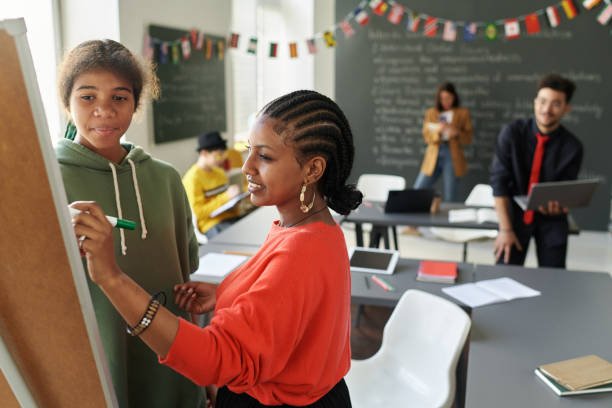Black history education is more than just a collection of dates, names, and events. It is the preservation of identity, resilience, and cultural contributions that have often been overlooked in mainstream narratives. By teaching and learning Black history in schools, universities, and communities, we not only honor the struggles and achievements of Black people but also build a more inclusive and informed society.
What Is Black History Education?
Black history education refers to the study, teaching, and celebration of the experiences, contributions, and struggles of Black people throughout history. It covers topics such as:
- The transatlantic slave trade and its global impact
- Civil rights movements in the U.S., UK, and beyond
- Contributions of Black inventors, artists, scientists, and leaders
- African heritage and traditions
- Contemporary issues affecting the Black community
Why Black History Education Is Important
1. Preserves Cultural Identity
Black history ensures that future generations understand the heritage, pride, and resilience of the African diaspora. It combats erasure by keeping stories alive.
2. Promotes Equality and Inclusion
Education that includes Black history highlights systemic injustices and teaches the value of diversity, equality, and social justice.
3. Empowers Young People
When Black students see themselves represented in history, it boosts confidence, self-worth, and ambition. Representation matters.
4. Corrects Historical Misrepresentation
Too often, mainstream history minimizes or omits Black contributions. Black history education fills these gaps with truth and perspective.
Black History Education Around the World
- United States: Black History Month, founded by Carter G. Woodson, is celebrated every February to honor African American achievements. Many schools are incorporating Black history into the curriculum year-round.
- United Kingdom: Black History Month is observed every October, emphasizing the contributions of Black Britons and the African diaspora.
- Africa & The Caribbean: Education often blends heritage and post-colonial struggles, focusing on independence movements, cultural preservation, and global contributions.
Challenges in Black History Education
Despite progress, challenges remain:
- Limited curriculum space in schools
- Political debates around teaching race and colonial history
- Lack of resources for educators to cover diverse narratives
To move forward, it’s essential that governments, educators, and communities work together to ensure comprehensive and truthful representation.
The Future of Black History Education
Technology and global awareness are reshaping how we learn. Online platforms, documentaries, podcasts, and digital archives make Black history more accessible than ever before. In the future, schools are expected to:
- Incorporate global perspectives of Black experiences
- Use interactive tools like virtual museums and digital storytelling
- Encourage community-led education with local Black voices
Conclusion
Black history education is not optional—it’s essential. It fosters cultural pride, builds empathy, and ensures that contributions of Black people are recognized and celebrated. By integrating Black history into education systems worldwide, we take a vital step toward equality, justice, and unity.
As the saying goes: “Black history is world history.” Understanding it helps us all create a brighter and more inclusive future.

